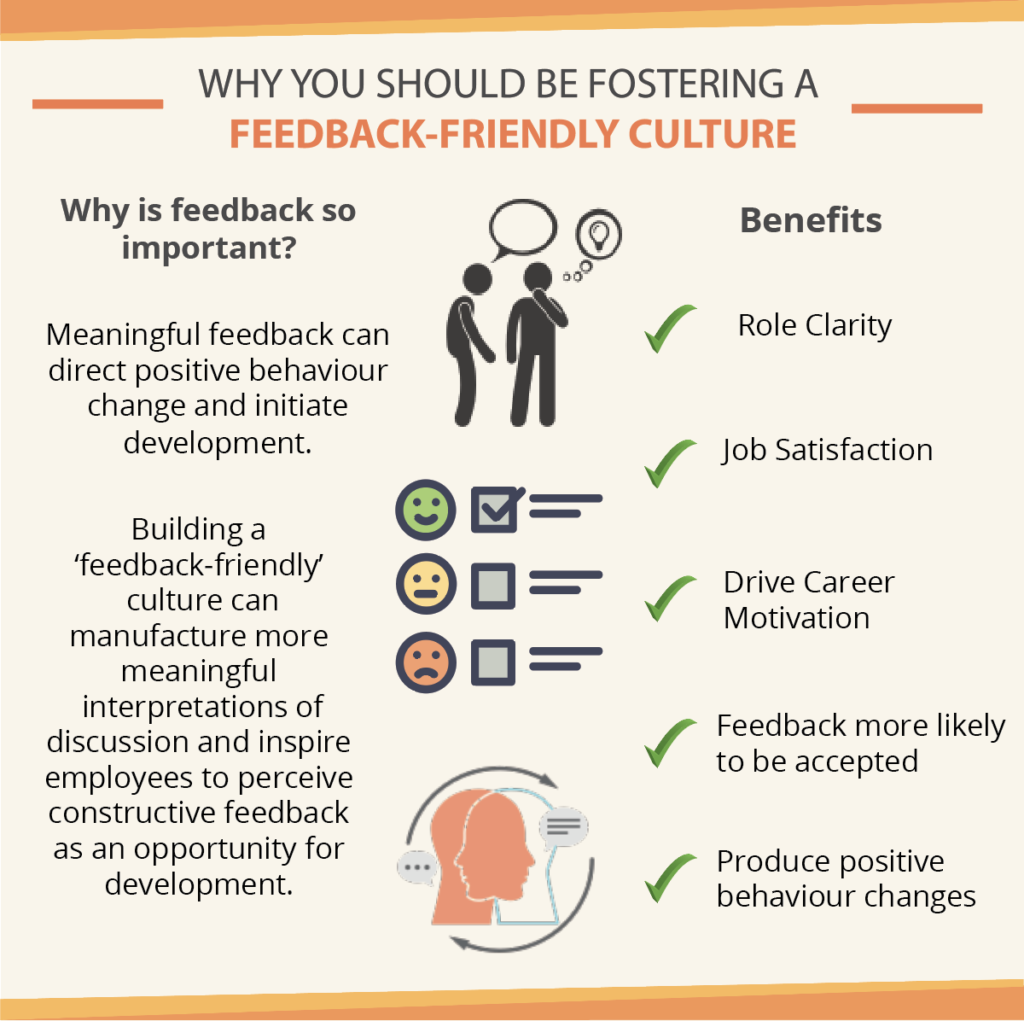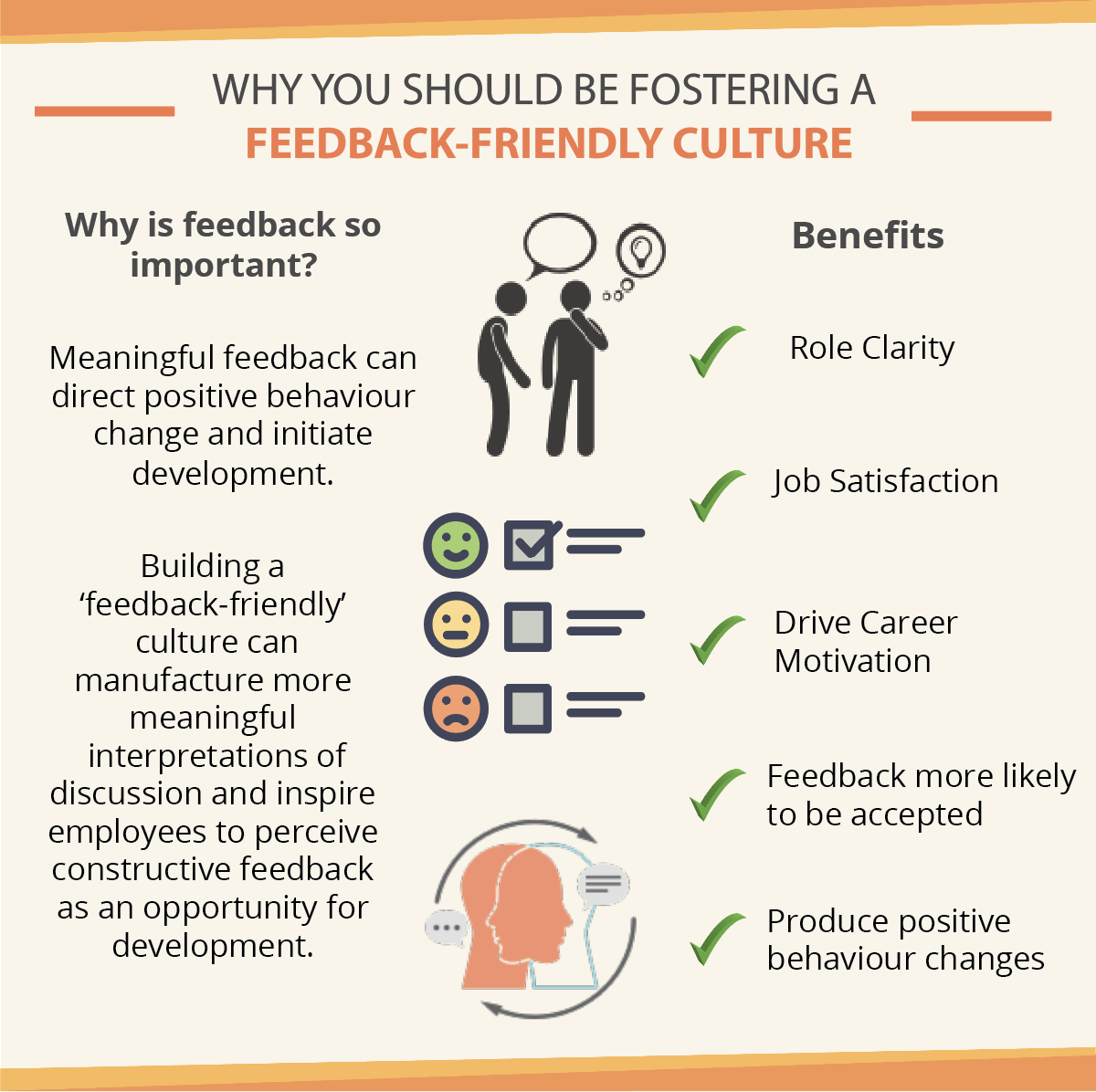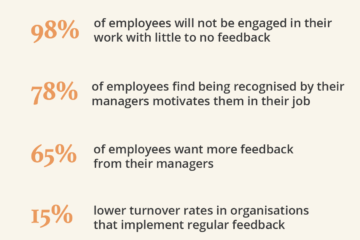Fostering a Feedback-Friendly Culture in Your Organisation
Individual feedback in organisations is important, but creating a feedback-friendly culture can initiate more meaningful interpretations and drive positive change.


Promoting the continuity of learning
Providing supportive feedback to employees with processes to assist with properly understanding the meaning and significance behind the information being presented to them is the most effective. When employees can be coached to perceive feedback as an opportunity for development and are provided with a path to achieving these goals they are more likely to accept and utilise feedback.
Developing a trusting environment
Employees should feel that they can present their thoughts and worries to their leaders without always receiving negative consequences. Developing a trusting working environment will ensure employees psychological safety and nurture a supportive domain in which they are more receptive to your feedback.
Encouraging dialogue when delivering feedback
Allowing employees to provide their own input in feedback sessions is a way for them to engage in free-flowing communication channels. This makes the feedback process much less daunting for employees and inspires them to take more from the feedback and put into place goals for future development.
Source: Baker, A., Perreault, D., Reid, A., & Blanchard, C. M. (2013). Feedback and organizations: Feedback is good, feedback-friendly culture is better. Canadian Psychology/Psychologie Canadienne, 54(4), 260-268. http://doi.org/10.1037/a0034691




0 Comments